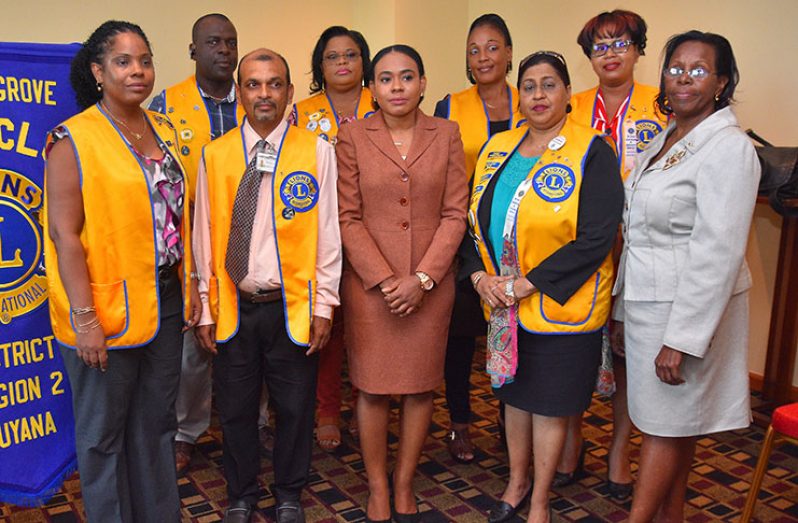-GPHC chair
WITH diabetes cases numbering in the thousands, Georgetown Public Hospital Corporation (GPHC) Chairperson, Kesaundra Alves has said that an aggressive action plan is needed to tackle the disease.

Diabetes is a disease in which the body’s ability to produce or respond to the hormone insulin is impaired, resulting in abnormal metabolism of carbohydrates and elevated levels of glucose in the blood
According to statistics, some 141 million people worldwide are affected by diabetes, with more than 44.3 million recorded in North American and Caribbean countries, a figure which is expected to rise to 60.5 million by 2040.
In 2015, the number of diabetic cases in Guyana stood at 49,800 and the World Health Organisation (WHO)’s country profile of 2016 revealed that most deaths occurred in the 30-69 age range, males 160 and females 180, while those 70 years and above, males less than 100 deaths and females 140.
While there have been many attempts locally to reduce those figures, there is still much work to be done, said Alves at a World Diabetes Day programme, organised by the Lions Club of Diamond/Grove and held at the Ramada Hotel, Providence, on Tuesday.
“World Diabetes Day is being observed globally with the objective of heightening awareness and making more effective interventions to combat this disease which is prevalent at the national, regional and international levels,” the GPHC chairperson said.
Statistics from the Americas revealed that the situation is quite alarming in Guyana and Trinidad and Tobago.

Those countries reportedly occupy the top positions, out of 54 countries, with regard to the incidence of diabetes and deaths of persons during their working life.
Alves, in making reference to that, said that the local economy will be severely compromised if, on a yearly basis, the human resources dwindle as a consequence of diabetes which can be prevented or better managed if only persons change their lifestyle and work at reducing the risk factors that are attributed to this disease.
“Collectively, you and I have to make a concerted effort to reverse this upward trend, and so I want to compliment the members of the Diamond/Grove Lions Club who have taken this initiative to organise this forum, with a view to educating residents of the surrounding communities on the prevalence of this disease and to apprise them of the numerous ways in which human suffering related to debates and its complications can be alleviated,” said Alves.
She also zeroed in on the theme for World Diabetes Day “Women and diabetes — our right to a healthy future.”
According to her, in Guyana, the statistics reveal that more women than men are affected by the disease and are less able to withstand the burden of the disease.
The third sustainable goal of the United Nations (UN) speaks to the health and well-being of all women and girls.
Alves said the local health systems must be fully responsive to them in the sense of offering high quality, more comprehensive and readily available services.
“As we think of women with diabetes and those prone to the disease, it is important that they have access to essential diabetes medicine and technologies and self-management education and information they need to achieve optimal generations,” she said.
Members of the Lions Club also supported her notion of building and strengthening capacity to place women and girls as a top priority for the Ministry of Public Health.
Alves said the Ministry has been severely challenged with the high incidence of diabetes but [it] has been able, with the emergence of the Guyana Diabetes Care Project, to better address and manage the disease.
The programme is focused on four priority areas, namely: Diabetic retinopathy; Diabetes in pregnancy; The development of a diabetes database at the Ministry of Public Health; and a public awareness component through the Chronic Disease Unit at the Ministry of Public Health.




.jpg)









